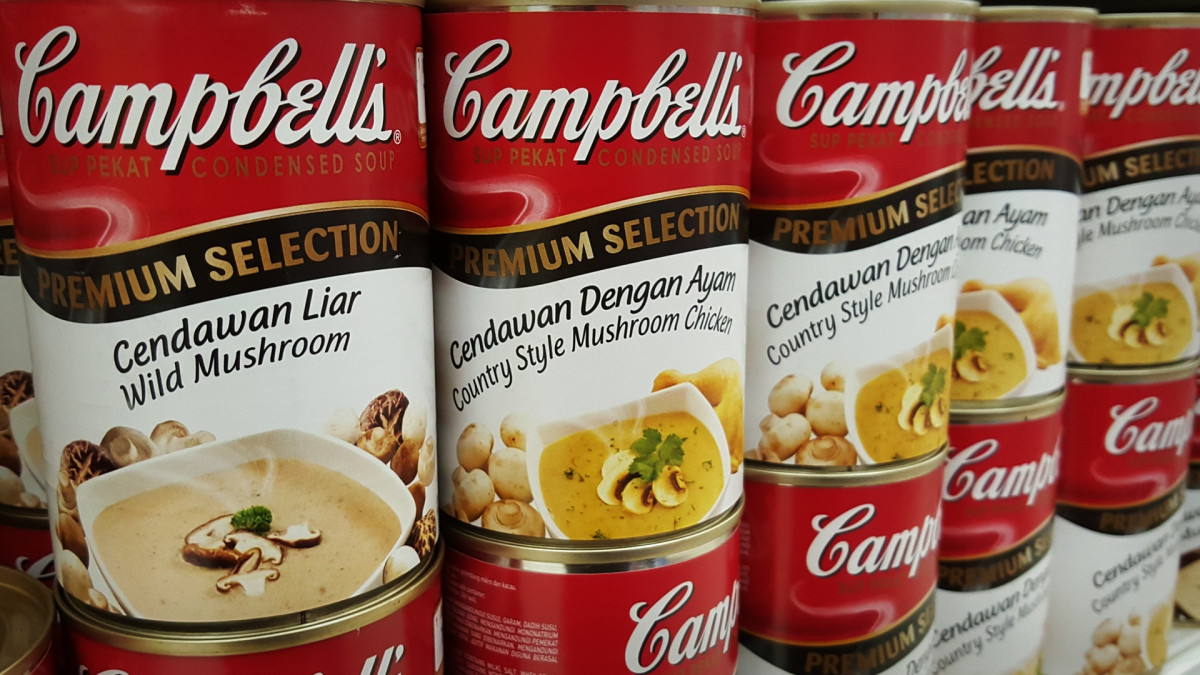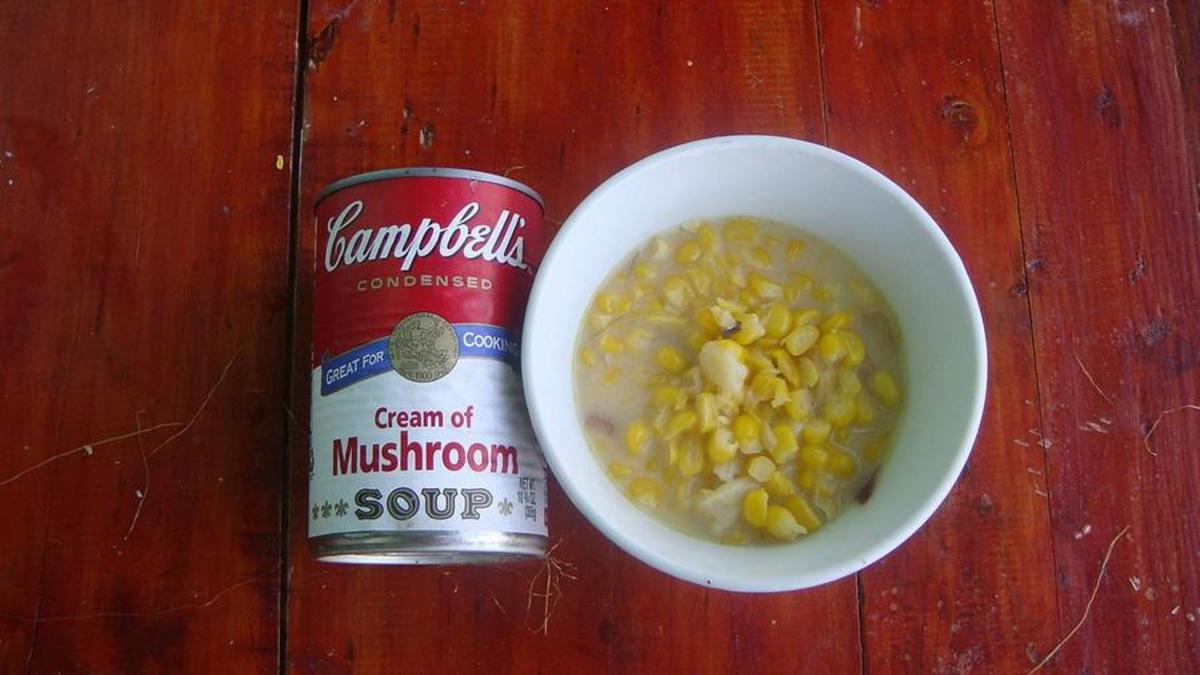
After all these years, soup's not on.
Campbell Soup (CPB) has gone by that moniker since 1869, but come November a critical part of the iconic name will disappear as the first company to sell canned soup will be known as Campbell’s Co.
Related: Campbell Soup searches for a modern-day Andy Warhol moment
“This subtle yet important change retains the company’s iconic name recognition, reputation and equity built over 155 years while better reflecting the full breadth of the company’s portfolio,” Chief Executive Mark Clouse said in a statement.
Clouse said Campbell, which held an Investor Day at the Nasdaq MarketSite in New York on Sept. 10, has been on "a transformative journey" for the past five years.
"We are ready to turn the page and enter a new chapter where we build on Campbell's transformed portfolio, strong team, and aligned and engaged culture with the goal to set the standard for performance in the food industry," Clouse said.
The company outlined plans for "the next era of accelerated growth," which included delivering growth in adjusted earnings per share of roughly 7% to 9% through fiscal 2027.
There is more to this company than soup.
In March, Clouse told analysts that Goldfish crackers officially crossed $1 billion in net sales, making it the second billion-dollar brand in the portfolio, right up there with the soup cans that Andy Warhol liked so much.
That same month Campbell's completed the $2.7 billion acquisition of Sovos Brands, owner of Rao's Homemade.

Campbell forms new business unit
The company formed a new business unit within the Meals & Beverages division called Distinctive Brands, to include Sovos Brands, which consists of pasta sauces, dry pasta, soups, frozen pizza and yogurts.
It's important to note that Campbell is hardly the first company to play the name game.
Related: GameStop CEO mulls harsh decision after earnings surprise
Most people know that Google changed its handle to Alphabet (GOOGL) in 2015, but way back in 1996, the search engine giant was reportedly known as BackRub — yes, seriously, BackRub — for its analysis of the web's “back links.”
However, that name was rubbed out when the word "googolplex" was whittled down to "googol" and then a spelling mistake gave the world "Google."
Internet retail and entertainment giant Amazon (AMZN) was originally known as Cadabra, a play on the magic word "abracadabra." But Founder Jeff Bezos made that handle disappear when a lawyer misheard the original name as "cadaver."
Remember back in 2021 when Facebook became Meta Platforms (META) ?
CEO Mark Zuckerberg maintained that there was more to the company than social apps, explaining that "the metaverse is the next frontier in connecting people, just like social networking was when we got started."
Yum Brands' (YUM) Kentucky Fried Chicken cooked up the name KFC, and WW International (WW) used to be called Weight Watchers.
Heck, even Apple (AAPL) was once Apple Computer, but in 2007 Co-Founder Steve Jobs said the company was changing its name to Apple to focus more on consumer electronics.
Company name changes: 'varying degrees of success'
"The decision to rename your company is a tricky proposition, but businesses continue to do it with varying degrees of success," the Wharton School of the University of Pennsylvania noted in a 2018 podcast.
“I think the perspective of trying to reinvent yourself, trying to refresh what you’re doing, is an important aspect,” marketing Professor Americus Reed said. “It’s also kind of a double-edged sword because oftentimes we have nostalgia wrapped up in these brands.”
Sign up for TheStreet's free daily newsletter.
Some name changes are brought on due to scandals or disasters. Reed said "there is a consideration sometimes when you’re trying to create a psychological distance between something that has happened."
“There’s been a brand crisis,” Reed said. “It makes sense to do that a little bit more quickly, perhaps, and to dive right into the pool.”
There was some strong reaction to Campbell rebranding on the microblogging site X, which was Twitter until owner and Tesla (TSLA) CEO Elon Musk made that name go away.
Analyst: risk/reward 'relatively appealing'
"Because rebranding is always a brilliant move," Nick Martin said.
"We love less choice and bigger corporations! my favorite," poster davethedoorman3 wrote.
"Wait, they were called campbell's soup?" asked Eric Cromwell. "I always thought they were just Campbell's and Soup was just on the soup cans. Shows how much I pay attention."
Campbell Soup beat Wall Street's fourth-quarter earnings expectations last month, with sales totaling $2.3 billion, up 11% from a year earlier. The sales rise was attributed largely to the Sovos Brands acquisition.
More Wall Street Analysts:
- Analyst says Intel should drop a key business to survive
- Analysts adjust Bookings.com stock price target on travel market
- Analysts place bets on Las Vegas strip casino stocks
"We continued to see momentum on the Sovos Brands business and advanced the integration of the best growth story in food into our Meals & Beverages business," Clouse said during the company's earnings call.
Clouse said the one negative indicator was a modest reversal in consumer confidence in the fourth quarter, “signaling the somewhat fragile state of the consumer, and why being prudent on expectations still makes sense.”
“However, overall, as we’ve said before, we continue to see the recovery of the consumer environment, not as a question of if but rather a question of when,” he said.
Analysts reacted to Campbell's Investor Day announcements.
Barclays raised the investment firm's price target on Campbell Soup to $49 from $45 while affirming an underweight rating on the shares, according to The Fly.
The firm said that it understood the "investor reservation" around Campbell's decision to raise its long-term growth algorithm. That, Barclays said, is because the track record of success for packaged-food companies that have done so "is checkered, to say the least."
Barclays said that Campbell "management thought long and hard" about whether to raise its organic-sales-growth algorithm.
Related: Analyst revises Amazon stock price target on advertising estimates
In light of the Sovos Brands addition, incremental planned investment spending, a greater contribution from innovation, and an advantaged supply chain, the investment firm said the company "had a hard time not expressing some level of increased optimism for the potential of its top line, even in the broader context."
JP Morgan raised its price target on Campbell to $57 from $55, implying 15% total shareholder return, and maintained an overweight rating on the shares.
The investment firm still views the stock's risk/reward balance as "relatively appealing" following the Investor Day. JP Morgan said it was "encouraged" to learn that Campbell's Meals & Beverages unit is expected to hit a 19% margin in fiscal 2027, thanks in part to efficiency gains.
The firm pointed out the company's guidance already incorporates more spending.
Related: Veteran fund manager sees world of pain coming for stocks







